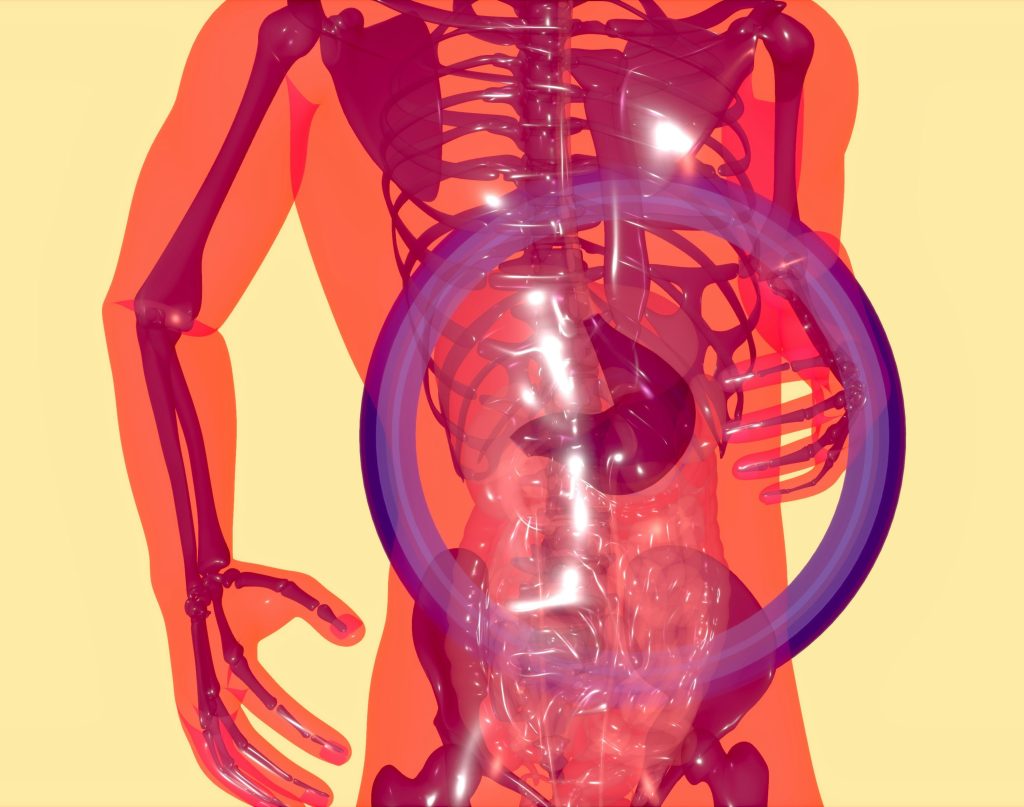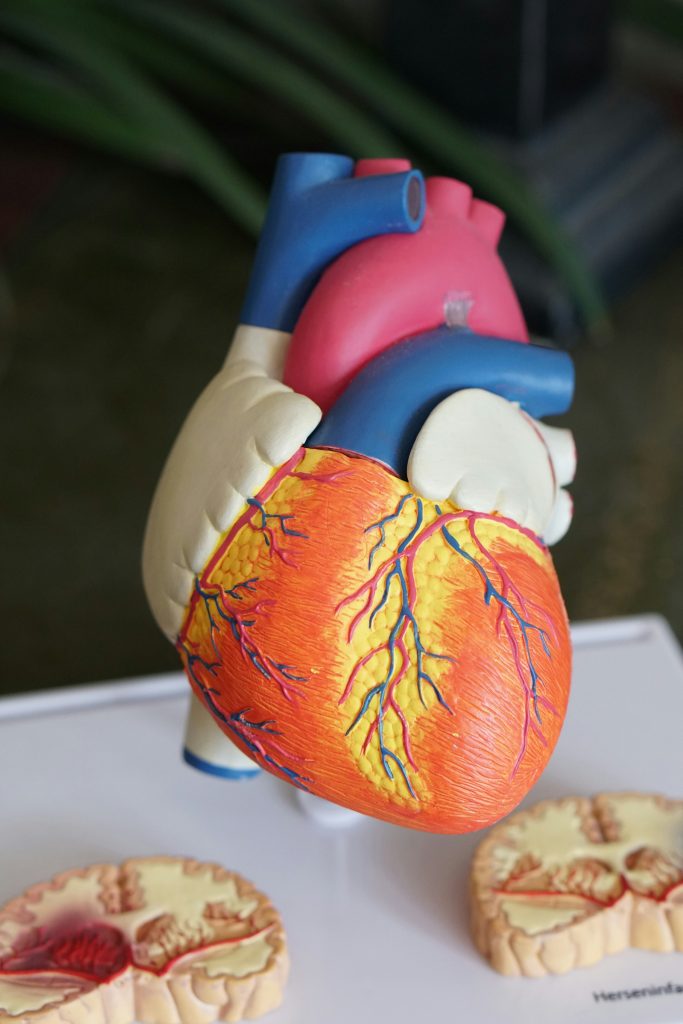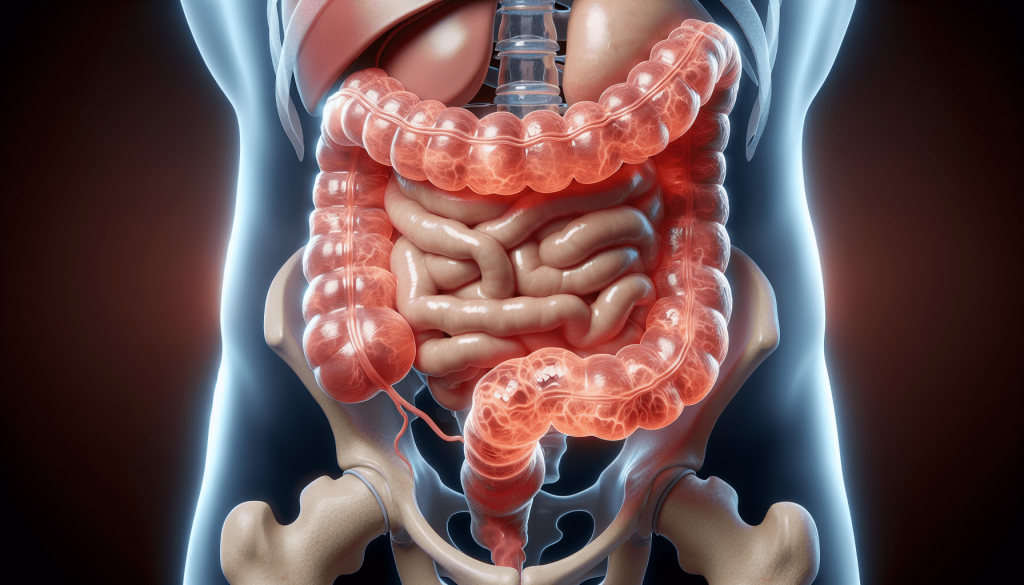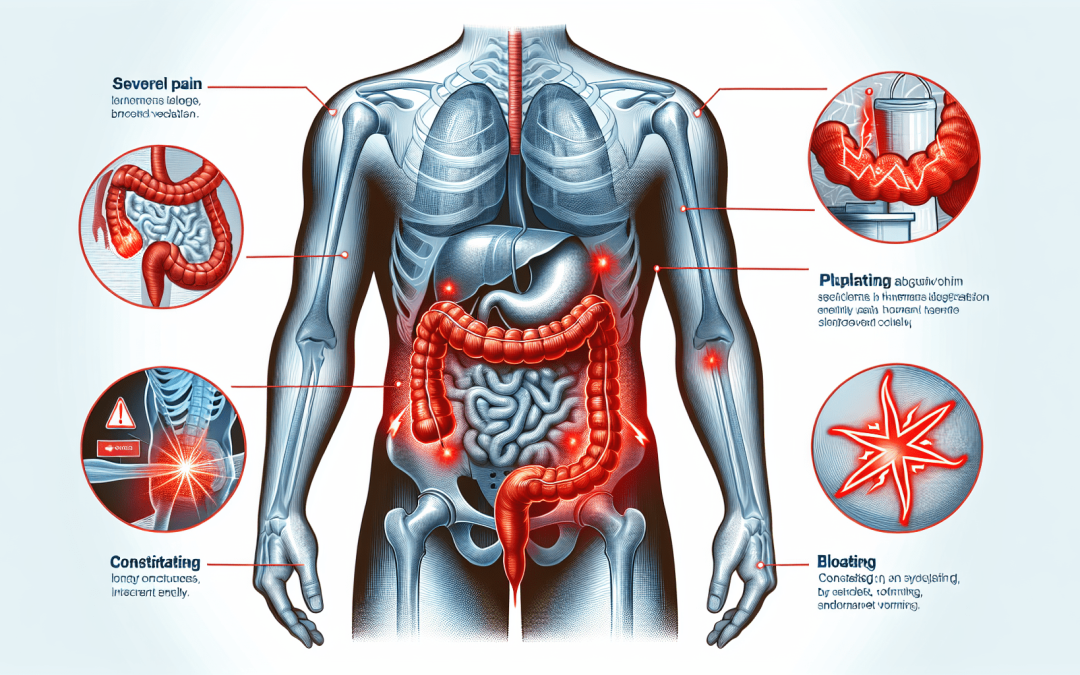If you’ve ever experienced a blocked bowel, you know just how uncomfortable and worrisome it can be. But how can you tell if your bowel is blocked? In this article, we will explore the common signs and symptoms to look out for. From severe abdominal pain to changes in bowel movements, understanding these indicators can help you identify a blocked bowel and seek the necessary medical attention. So, let’s dive into the world of gastrointestinal health and learn how to recognize the signs of a blocked bowel.

Abdominal Pain
Abdominal pain can be a common symptom of various digestive issues, including a blocked bowel. When you have a blocked bowel, the passage of stool becomes difficult or impossible, leading to pain in the abdomen. The severity and location of the pain may vary based on the specific cause of the blockage.
Cramping
One common form of abdominal pain associated with a blocked bowel is cramping. These cramps typically occur in waves and may vary in intensity. You may feel tightness and discomfort in your abdomen, often accompanied by a feeling of pressure. The cramping sensation can be persistent or intermittent, and it can worsen if left untreated.
Sharp or Stabbing Pain
In addition to cramping, sharp or stabbing pain is another telltale sign of a blocked bowel. This type of pain may be more intense and localized in a specific area of the abdomen. It can arise suddenly and may be exacerbated by movement or certain positions. If you experience sharp or stabbing pain in your abdomen, it is important to seek medical attention promptly.
Bloating
Bloating is a common symptom experienced by individuals with a blocked bowel. With a blockage obstructing the normal passage of stool, gas can accumulate in the digestive tract, leading to distention and discomfort. Your abdomen may feel full and swollen, and you may notice a visible increase in your waistline. Bloating can also be accompanied by feelings of heaviness and tightness in the abdomen.
Constipation
Constipation occurs when bowel movements become infrequent or difficult to pass. It is a common sign of a blocked bowel and can manifest in various ways.
Infrequent Bowel Movements
One key indicator of constipation and a possible blocked bowel is infrequent bowel movements. In a normal digestive system, regular and consistent bowel movements are essential to remove waste from the body. However, if you have a blocked bowel, your stool may not be able to pass through, resulting in long gaps between bowel movements. This can lead to discomfort and a feeling of incomplete evacuation.
Straining During Bowel Movements
When you have a blocked bowel, you may experience difficulty in passing stool, leading to increased straining during bowel movements. Struggling to have a bowel movement can cause abdominal pain and discomfort. You may find yourself pushing or exerting excessive force to try and relieve the blockage. However, straining excessively can further exacerbate the problem and should be avoided.
Hard or Lumpy Stools
Another sign of constipation and a potential blocked bowel is the characteristic texture of the stool. When stool remains in the colon for an extended period due to a blockage, it can become hard and dry. You may notice that your stools are difficult to pass and have a lumpy or pellet-like appearance. These hard and lumpy stools can contribute to increased straining and discomfort during bowel movements.
Diarrhea
While it may seem contradictory, diarrhea can also be a sign of a blocked bowel. When a blockage prevents the normal passage of stool, the body may compensate by increasing the production of mucus and fluids in the intestines, leading to a change in bowel habits.
Loose or Watery Stools
One indication of a blocked bowel is the appearance of loose or watery stools, commonly known as diarrhea. The presence of a blockage can disrupt the normal absorption of water in the intestines, resulting in increased fluid content in the stools. These loose and watery stools can be accompanied by urgency to have bowel movements and a sense of incomplete evacuation.
Urgency to Have Bowel Movements
As the body tries to remove the blockage, you may experience a heightened sense of urgency to have bowel movements. This urgency can be difficult to control and may lead to frequent trips to the bathroom. The feeling of needing to rush to the toilet is a common symptom experienced by individuals with a blocked bowel.
Frequent Bowel Movements
In addition to urgency, frequent bowel movements can also be a sign of a blocked bowel. The body’s attempt to bypass the blockage can result in an increased frequency of bowel movements. You may find yourself needing to use the bathroom multiple times in a short period, sometimes only passing small amounts of stool each time.
Nausea or Vomiting
Nausea and vomiting can occur as a result of a blocked bowel. When a blockage prevents normal digestion and the passage of waste, it can trigger these uncomfortable symptoms.
Feeling of Queasiness
One of the early signs of a blocked bowel is a persistent feeling of queasiness. You may experience a general sense of unease or discomfort in your stomach, often accompanied by a loss of appetite. This queasiness can sometimes be relieved by burping or passing gas, but it tends to persist until the underlying issue causing the blockage is resolved.
Vomiting or Retching
In more severe cases, a blocked bowel can lead to episodes of vomiting or retching. As the blockage obstructs the normal flow of food and waste, the body may try to expel the contents of the stomach through vomiting. Vomiting can provide temporary relief, but it is crucial to seek medical attention if you experience persistent or severe vomiting, as it can lead to dehydration and electrolyte imbalances.
Loss of Appetite
A blocked bowel can significantly impact your appetite and feelings of hunger. When the digestive system is not functioning properly, it can affect your desire to eat and lead to a loss of appetite.
Lack of Interest in Food
One of the primary symptoms of a blocked bowel is a lack of interest in food. You may find that your appetite decreases or that you have no desire to eat at all. This loss of interest in food can be accompanied by feelings of fullness or a sensation of being bloated even before consuming a meal.
Feeling Full Quickly
Even if you manage to eat despite a decreased appetite, you may feel full quickly. A blocked bowel can interfere with the normal digestion and absorption of nutrients, causing a feeling of fullness after consuming only a small amount of food. This early satiety can be frustrating and contribute to further weight loss or nutritional deficiencies.
Weight Loss
Unintentional weight loss is another potential consequence of a blocked bowel. When the blockage restricts the normal flow of food and waste, it can lead to difficulty in maintaining a healthy body weight.
Unintentional Weight Loss
Unexplained or unintentional weight loss is a common sign of a blocked bowel. As the blockage hinders the absorption of essential nutrients, the body may begin to break down its own muscle mass and fat stores for energy. This can result in a gradual but noticeable decrease in body weight over time.
Loss of Muscle Mass
Due to the limited intake and impaired absorption of nutrients, a blocked bowel can lead to a loss of muscle mass. The body relies on protein to rebuild and maintain muscles, but a blocked bowel can prevent the proper utilization of dietary protein. As a result, you may notice a decrease in muscle tone and strength, as well as a general feeling of weakness.

Abdominal Distention
Abdominal distention refers to a sensation of fullness or tightness in the abdomen, often accompanied by visible swelling or bloating. This can occur when a blocked bowel causes a buildup of gas and fluid in the digestive system.
Feeling of Fullness or Tightness in the Abdomen
Individuals with a blocked bowel often describe a persistent feeling of fullness or tightness in their abdomen. This sensation can range from mild discomfort to severe pain, depending on the severity of the blockage. It may be worsened by eating or drinking and can persist even after a bowel movement.
Visible Swelling or Bloating
In addition to the subjective feeling of fullness, a blocked bowel can lead to visible swelling or bloating of the abdomen. As the blockage prevents the normal passage of gas and stool, they can accumulate in the digestive system, causing the abdomen to distend outward. This bloating can be noticeably visible and may fluctuate throughout the day.
Frequent Gas
Gas is a normal byproduct of digestion, but when you have a blocked bowel, you may experience an increase in the frequency of passing gas.
Passing Gas More Frequently Than Usual
Individuals with a blocked bowel often find themselves passing gas more frequently than usual. The accumulation of gas in the digestive system, as a result of the blockage, can lead to excessive flatulence. You may notice that you are burping or farting more frequently, which can provide temporary relief but does not address the underlying issue.
Excessive Belching
Belching, or burping, is another common symptom of a blocked bowel. As gas builds up in the digestive system, you may experience an urge to release it through belching. Excessive belching can be uncomfortable and embarrassing, and it is often a sign that the digestive system is not functioning optimally.

Fatigue
When your body is unable to properly digest and absorb nutrients due to a blocked bowel, it can lead to feelings of fatigue and weakness.
Feeling Tired or Weak
Fatigue is a common symptom experienced by individuals with a blocked bowel. The lack of properly absorbed nutrients, such as carbohydrates and fats, can limit the body’s energy production and leave you feeling tired or weak. You may struggle to perform daily activities or feel exhausted even after a period of rest.
Lack of Energy
In addition to feeling physically tired, a blocked bowel can also result in a general lack of energy. The body requires a consistent supply of nutrients to support its various functions, but a blockage can disrupt this balance. As a result, you may find it difficult to stay mentally focused or motivated, further contributing to feelings of fatigue.
Malnutrition
One of the significant concerns associated with a blocked bowel is malnutrition. The blockage disrupts the normal digestion and absorption of nutrients, leading to deficiencies in vitamins and minerals.
Deficiencies in Vitamins and Minerals
When a blocked bowel prevents the absorption of nutrients, it can result in deficiencies in essential vitamins and minerals. These micronutrients play crucial roles in various bodily functions, and their scarcity can lead to a range of health issues. Common deficiencies associated with a blocked bowel include vitamins A, D, E, and K, as well as minerals like iron and magnesium.
Delayed Growth in Children
In children, a blocked bowel can have particularly detrimental effects on growth and development. The limited intake and absorption of essential nutrients can impede normal growth patterns, leading to delayed height and weight gain. It is crucial to address a blocked bowel in children promptly to ensure proper nutrition and support their overall well-being.
Brittle Hair and Nails
The effects of malnutrition caused by a blocked bowel can also manifest externally. Deficiencies in essential nutrients can impact the health of your hair and nails. You may notice that your hair becomes dry and brittle, prone to breakage. Similarly, your nails may become weak and easily damaged. These changes are often indicative of underlying nutritional deficiencies and should not be ignored.
In conclusion, a blocked bowel can present with various signs and symptoms that can significantly impact your overall well-being. From abdominal pain and bloating to changes in bowel habits and weight loss, it is essential to recognize and address these warning signs promptly. If you experience any of these symptoms persistently or in combination, it is recommended to seek medical attention for a thorough evaluation and appropriate treatment.










